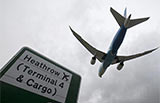Seven provincial-level regions unveil price control reforms
(chinadaily.com.cn) Updated: 2016-05-26 13:33
 |
|
Consumers choose vegetables at a supermarket in Shanghai, March 10, 2016.[Photo/Agencies] |
The website said that so far Beijing, Fujian, Hunan, Jiangsu, Inner Mongolia, Liaoning, and Hebei have made their programs public.
Beijing and Hebei province have said they will lift price controls in competitive sectors by 2020, while Fujian will take a similar move as early as 2017.
Meanwhile, the reforms are focused on some key sectors, such as transportation, medical services, resources and education, and the timetable and roadmap have been established accordingly.
Beijing will improve the pricing mechanism that will ease traffic congestion, implement the Beijing 2013-2017 Clean Air Action Plan, and conduct research on the congestion charge, according to the website.
Last October, the State Council issued the Opinions on Promoting the Pricing Mechanism Reform. According to the guideline, the country will lift price controls over nearly all goods and services in competitive sectors by 2017.
By 2020, China should have a sound pricing mechanism in which the market will play a decisive role, and there will be a rational and transparent pricing regulation and a well-enforced anti-monopoly law.
Pricing reform has moved swiftly in recent years, with price controls over medicines, telecommunications and transportation relaxed.
- Seven provincial-level regions unveil price control reforms
- VR, robots, mini drones: Highlights of big data expo in Guiyang
- Startup Village brings global investors and entrepreneurs to Skolkovo Innovation Center
- Big Data Expo 2016 opens in Guiyang
- Qualcomm says it's here to stay in China
- Belt and Road Initiative connects Chinese capabilities with UK expertise
- New Third Board confirms two-way division
- China's wealth management sector 'should go more global'

















